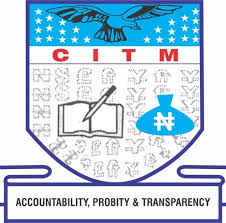The Chartered Institute of Treasury Management (CITM) has praised the Federal Government for projecting a revenue surplus in 2025, describing it as an opportunity to finance development without resorting to fresh borrowing.
Mr Olumide Adedoyin, Registrar of CITM, said in a statement on Wednesday in Abuja that the surplus should be viewed as a golden chance to support national transition without sliding back into debilitating debt.
“The government is right to celebrate improved revenue, as it remains the primary tool to escape the debt trap,” he said.
Adedoyin, however, cautioned against embarking on new borrowing, stressing that it could deepen debt distress. He said that any borrowing should be tied strictly to critical, revenue-generating infrastructure projects and secured only on highly concessional terms, preferably from multilateral lenders with low interest rates and long repayment periods.
He observed that by mid-2024, Nigeria’s debt profile was already marked by rapid growth, changing composition and rising fiscal pressures.
According to him, the solution lies in fiscal discipline, aggressive revenue mobilisation and prudent debt management rather than additional borrowing.
Adedoyin urged government to create an enabling environment for the private sector to drive sustainable economic growth.
He further explained that expanding revenue would require widening the tax net by systematically bringing millions of informal businesses and high-net-worth individuals into the system through technology and data-driven measures.
He added that taxation should focus more on wealth and consumption rather than income, while non-oil revenue sources such as solid minerals, agriculture and the digital economy should be prioritised to boost exports and tax inflows.
The CITM registrar also called on government to ensure that the Nigerian National Petroleum Company Ltd. remits its full obligations to the Federation Account, noting that transparency in the oil sector was non-negotiable.
He advised proactive engagement with bilateral and commercial creditors to extend repayment periods and reduce interest rates to ease annual debt servicing pressures.
Adedoyin further urged drastic cuts in waste, corruption and the high cost of governance, recommending the merger of redundant agencies and strict enforcement of the Fiscal Responsibility Act.
He stressed that savings from fuel subsidy removal must be channelled transparently into productive investments and targeted social safety nets, not absorbed into recurrent spending.
(NAN)







